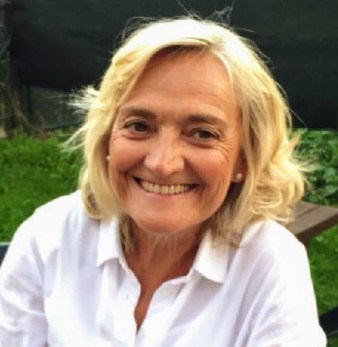Editorial
“What is past is prologue”
 As new President of EuCheMS, I am very pleased to provide the editorial of our publication Chemistry in Europe. We begin 2018 full of enthusiasm and initiatives that we hope will be to the great advantage of chemistry and society. I start my adventure accompanied by an excellent team in the Executive Board, the invaluable support of the General Secretariat, and the continuous dedication of the Professional Networks. Their members are the core of our association, and it is thanks to them that we can advance in improving chemistry in Europe.
As new President of EuCheMS, I am very pleased to provide the editorial of our publication Chemistry in Europe. We begin 2018 full of enthusiasm and initiatives that we hope will be to the great advantage of chemistry and society. I start my adventure accompanied by an excellent team in the Executive Board, the invaluable support of the General Secretariat, and the continuous dedication of the Professional Networks. Their members are the core of our association, and it is thanks to them that we can advance in improving chemistry in Europe.
EuCheMS will therefore continue to act as a supranational organisation focussed on:
- increasing the visibility of chemistry at the European level by speaking with one single voice;
- presenting chemistry as an essential and indispensable provider of solutions for global challenges;
- complementing national activities on a transnational level through networking, holding our European Chemistry Congresses and participating in science policy development.
In short, if I were to describe EuCheMS in simple words I would use the terms subsidiarity and solidarity.
Subsidiarity is understood here in the sense that EuCheMS will take action when it is more effective than action taken at national, regional or local level. For example offering advice to the European Commission (on climate change or funding for example); running parliamentary workshops (as we have already done on employability, antibiotic resistance, glyphosate), and by writing articles and declarations, which have the added value of being endorsed by the national societies (recently against the use of chemical weapons, chlorine in warfare and the European chemist’s desires for post-Brexit.)
EuCheMS is therefore a good example of the holistic concept, the whole (EuCheMS) is more than merely the sum of its parts (the national chemical societies)
But EuCheMS is also about solidarity. We can pair big and small, more and less endowed societies, not so much in monetary terms, but by integrating them into a bigger community to address the challenges chemistry will have in the future. EuCheMS is therefore a good example of the holistic concept: the whole (EuCheMS) is more than merely the sum of its parts (the national chemical societies).
A good example of this added value is our position paper on “Research and Education Without Borders After Brexit”. In this document, EuCheMS highlights that research and industrial competitiveness across the EU greatly benefit from the input of UK researchers and vice versa, and so we urge the negotiators to maintain a relationship that is as strong as possible between EU and UK scientists. We have already involved other associations in endorsing this document, and so our supporting member, the European Federation of Medicinal Chemistry (EFMC), has already joined.
All these initiatives illustrate that EuCheMS provides a unique voice of chemistry and tries to place it at the heart of European policy. EuCheMS must continue in the future to develop and extend what it has done in the past. Quoting from a speech by the President of ACS, delivered in 1907 but which still prevails today, “we should all work in harmony to the end of the formation of a grand organization of chemists that shall be a power for the greatest good to the profession and to mankind”.
Pilar Goya Laza
EuCheMS President
Focus
Join us in Liverpool
Registration is now open for the 7th EuCheMS Chemistry Congress, an exciting five days full of opportunities to share ideas and strengthen connections, taking place 26–30 August 2018.
This year, the Royal Society of Chemistry will host the congress at the ACC in Liverpool, a major, heritage-rich city in the UK.
Under the theme of molecular frontiers and global challenges, we will be exploring a wide selection of topics designed to spark in-depth discussion – from biological catalysis and new approaches to clean fuels to smart polymers and molecular machines.
We have already confirmed plenary speakers including Frances Arnold, Ben Feringa and Jin-Quan Yu, who will feature in the main programme. Enriching the congress further, delegates can also look forward to an ancillary programme of workshops, lectures, symposia and discussions organised by EuCheMS member societies and members of the Royal Society of Chemistry. We also have a congress strand dedicated to the European Young Chemists’ Network.
If you’re interested in showcasing your work as part of an inspiring and varied congress, we will be accepting poster abstracts until 16 April.
Submit your abstract and register at www.euchems2018.org
Follow @EuCheMS_2018 for updates
We hope to see you in Liverpool.
Bengt Nordén ECC7 Scientific committee chair
Tom Brown ECC7 Scientific committee co-chair


You must be logged in to post a comment.